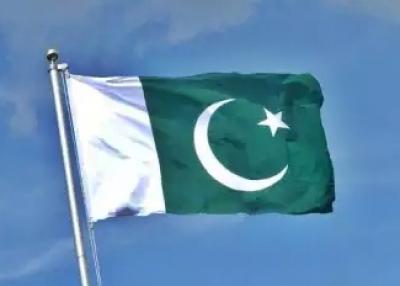Call For Restraint: India, Central Asian Countries Condemn Terrorism, Stress On Non-interference in Afghanistan’s Internal Affairs

New Delhi, Dec 19: India and the five Central Asian countries on Sunday agreed to enhance cooperation in trade, connectivity, and security even as they condemned terrorism, including cross-border terrorism, and stressed on the territorial integrity of Afghanistan and non-interference in its internal affairs.
In a joint statement, issued after the Third India-Central Asia Dialogue here today, the Foreign Ministers of the five Central Asian countries also reiterated their support for permanent membership of India in an expanded and reformed UN Security Council.
On enhancing trade, the Ministers stressed on the importance of making concerted efforts to achieve the full potential for trade, especially in sectors like pharmaceuticals, information technology, agriculture, energy, textiles, gems & jewelry etc.
They encouraged development of direct contacts between the States of India and the Regions of Central Asian countries, including through signing of Agreements/MoUs on the establishment of twinning/partnership relations between Indian states and regions of Central Asian countries.
They also agreed to Uzbekistan’s proposal to host the 3rd meeting of the India-Central Asia Business Council (ICABC) in 2022.
They focused on the need to establish cooperation between specialized national institutions, including in the fields of finance, renewable energy, information, digital and other advanced technologies.
They noted the need for continued large-scale and long-term economic cooperation between Central Asian countries and India in order to strengthen and expand interconnectivity. In this context, the Foreign Minister of Turkmenistan stressed on the importance of the TAPI gas pipeline project.
The two sides emphasized on optimum usage of the International North-South Transport Corridor (INSTC) as well as the Ashgabat Agreement on International Transport and Transit Corridor to enhance connectivity between India and the Central Asian countries.
“They stress that connectivity initiatives should be based on the principles of transparency, broad participation, local priorities, financial sustainability and respect for sovereignty and territorial integrity of all countries,” in an apparent reference to China’s Belt and Road initiative that is facing increasing criticism across the world for pulling countries into debt traps and swallowing areas in exchange for non-payment of dues.
“They welcomed the proposal to include Chabahar Port within the framework of INSTC and expressed interest in cooperation on issues related to the development and strengthening of regional connectivity in Central and South Asia.”
India welcomed the interest of Central Asian countries to utilize the services of Shahid Beheshti Terminal at Chabahar Port for facilitating their trade with India and beyond.
The Sides agreed to continue engagement for further developing the transit and transport potential of their countries, improving the logistics network of the region and promoting joint initiatives to create regional and international transport corridors.
They agreed to explore possibilities to establish joint working group(s), including participation of private sector, to address issues of free movements of goods and services between India and Central Asian countries.
They emphasized that interaction in the fields of defence and security constitutes an important element of India- Central Asia cooperation. In this regard, they noted the importance of holding regular consultations among the National Security Councils of India and the Central Asian countries in the fight against terrorism and other emerging challenges in the region.
“The Ministers condemned terrorism in all its forms and manifestations and reiterated that providing safe haven, using terrorist proxies for cross-border terrorism, terror financing, arms and drugs trafficking, dissemination of a radical ideology and abuse of cyber space to spread disinformation and incite violence, goes against the basic principles of humanity and international relations.
“They stressed that perpetrators, organizers, financiers and sponsors of terrorist acts must be held accountable and brought to justice in accordance with principle of “extradite or prosecute”.
“In this context, they called for early adoption of the UN Comprehensive Convention on International Terrorism.
“They called on the international community to strengthen UN-led global counter-terrorism cooperation and fully implement the relevant UNSC resolutions, Global Counter-Terrorism Strategy and FATF standards.”
On Afghanistan, the two sides discussed the current situation in that country and its impact on the region. They reiterated strong support for a peaceful, secure and stable Afghanistan while emphasizing the respect for sovereignty, unity and territorial integrity and non-interference in its internal affairs,” in an apparent reference to Pakistan that is accused of directing the affairs of the Taliban regime in Kabul.
They also discussed the current humanitarian situation and decided to continue to provide immediate humanitarian assistance to the Afghan people. The Ministers reaffirmed the importance of UNSC Resolution 2593 (2021), (adopted under India’s presidency in August), which unequivocally demands that Afghan territory not be used for sheltering, training, planning or financing terrorist acts and called for concerted action against all terrorist groups. The Ministers also agreed to continue close consultations on the situation in Afghanistan, it said.
They took note of the outcome document of the Delhi Regional Security Dialogue of November 10 2021, in which the security chiefs of all the five countries participated at the invite of NSA Ajit Doval, and noted that there is a broad ‘regional consensus’ on the issues related to Afghanistan, which includes formation of a truly representative and inclusive government, combating terrorism and drug trafficking, central role of the UN, providing immediate humanitarian assistance for the Afghan people and preserving the rights of women, children and other national ethnic groups.
The Ministers expressed appreciation for support to each other in the UN and other multilateral fora including SCO, CICA etc. India looked forward to Central Asian countries joining the ISA and CDRI.
On climate change, the two sides expressed their intention to actively cooperate in relevant sectors. The Foreign Minister of Kyrgyz Republic sought support of other Ministers for their proposal to declare 2022 as the International Year of Sustainable Mountain Development. The Foreign Minister of Uzbekistan sought support of the others for their proposal to hold in 2022 in Uzbekistan (Nukus, Karakalpakstan) a high-level UN International Forum on “green” energy.
The Sides expressed their desire to deepen cooperation between India and the Central Asian countries in the health-care sector, including medical tourism as well as increasing tourist arrivals.
The two sides stressed on the importance of promoting bilateral cooperation in cultural, educational and humanitarian spheres to further invigorate people-to-people contacts.






